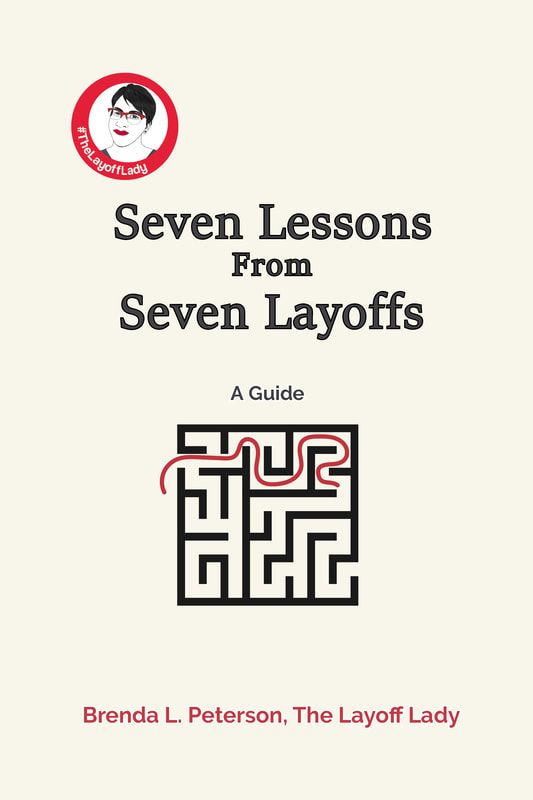|
By Brenda L. Peterson, The Layoff Lady What You WantIn a previous article, we discussed the value of knowing what you want, what you don’t want, and what would be okay. As your job search continues, you may adjust what you want as your job search progresses. Main Factors To ConsiderWhen you put together your target job, it is just that: your target. As you compare your target to the job market, you will need to revisit your job priorities. Know that one factor that may influence the type of job you take will be your time in the job market. Your Acceptable Job May Change Over TimeHere is how your job wants and needs may change over time:
You Can Also Stay the CourseConversely, you may be committed to find a job that very closely aligns with your target job. The good news is that you get to decide what role is right for you, and what will make you happy longer term. The bad news is that it may take you longer if you have very specific requirements and less flexibility. In this case, make sure that you think through options for interim income so you are able to support yourself as you find a role that meets your requirements. Learn More
0 Comments
By Brenda L. Peterson, The Layoff Lady The Value of Information GatheringIf a job opportunity comes to you, it is to your advantage to be ready to pursue that job. Doing a little extra information gathering ahead of time will help you fill out a detailed job application, include a particularly relevant class, or remind on eof your references pf when you worked together at a company. Since time may be of the essence when applying, this will help you meet that tight deadline with fewer headaches. Gathering this information, which is really your career backstory, will help you to tell the story of your professional life consistently. Your Work HistoryWhen filling out job applications, having a thorough list of where you worked and basic information about each job can come in handy. Depending on the application, you may be able to submit a resume alone and be done with it. Other companies may ask you for specific start and end dates for each role. They may even ask for contact information for your immediate manager and the organization itself. To make filling out more thorough job applications a little easier, I suggest you create a spreadsheet including information for your previous workplaces for the past 10-15 years. Depending on what stage you are at in your career, decide how many years of work experience it makes sense for you to gather. Make sure to compile this information for each role:
While you’re busy gathering information, you may want to note these items as well:
Your Education HistoryEmployers like to have assurances that a given candidate really has the knowledge, skills, and abilities they claim to have. This is why it’s helpful to list the classes you’ve taken, groups you’ve joined, certification tests you’ve passed, and degrees you’ve completed. Having this type of external validation for your skill set adds to your credibility. To customize your resume and make filling out a detailed job application easier, I suggest you create a spreadsheet to list the formalized ways you continue learning and growing. I list my college degrees, Association of Talent Development (ATD) membership, a business analysis class I took, a vendor-specific train-the-trainer course I attended, and a few technical certifications. Here are the core details to gather on each line item:
Keep in mind that this list is intended to accommodate everything from a 1-hour seminar you took once upon a time on sales prospecting all the way to an advanced degree. You may want to make separate lists for different activity types. Use the format that works best for you. Learn More
By Brenda L. Peterson, The Layoff Lady About ReferencesWhen you’re getting ready to apply for jobs, at some point, those companies will ask for professional references. Some organizations will ask for references during the initial application. Other employers will ask as they approach the final stages of their interview process. Let's look at how you can select and communicate well with these people who you want to vouch for you and your skills. About Professional ReferencesYour professional references will speak well of you and help potential employers see your value. While personal references are generally people who can vouch for your character, professional references can share their experience with you in a work-related capacity. Typically, you'll need the names and contact information for three people who can share their experiences with you. Selecting Your ReferencesWhen selecting your professional references, here are a few ideas on who you may want to use:
Overall, it's helpful to find people who have worked for you doing relevant work (paid or volunteer) and who can attest to your skills. Here are a few of the people I have used a reference in the past:
Which References To UseWhen I apply for jobs, I have two references I use consistently.
Depending on the role for which I am applying, I will choose which other reference might be the most helpful:
Overall, make sure that your references can speak to your skills as they might pertain to the specific job. Information To IncludeMake sure to collect the following details on your potential references so you are ready to share it with possible employers:
Asking People To Be Your ReferenceBefore you start giving out people's contact information, be sure to confirm they are okay with being your reference. I suggest doing this before a specific job asks for references. I usually send them a message via email, LinkedIn, or text that reads something like this: --------------- Hi, [first name]. I'm launching my job search, and I'm wondering if you'd be willing to be one of my professional references. If so, please share the following contact information details with me:
Thank you so much for your assistance! -------------- The Heads Up MessageAfter you have their initial permission to give out their name as a reference, be sure to also inform them if they should expect someone to reach out to them. In addition to letting them know who may contact them and the type of position, it's also good to share a reminder of your previous work relationship so they aren't scrambling. Here is an example of that type of message. --------------- Hi, [first name]. Thanks for being willing to be my reference! I recently applied for a [job title] position with [company name]. I am in the final stages of their interview process, and they may contact you via phone or email. As a reminder, you and I worked together at [company] from [date range] when I was a [my job title] and you were the [their job title]. Thanks again for your help! --------------- Learn More
|

Just get laid off?
Click here for info on what to do first. Author7-time layoff survivor Brenda L. Peterson, The Layoff Lady, waxes poetic on layoffs, job transitions, & career resilience. Buy The Book!Were you recently laid off from your job and need a roadmap for what's next? Pick up a copy of my book, Seven Lessons From Seven Layoffs: A Guide!
Categories
All
Archives
July 2024
|








